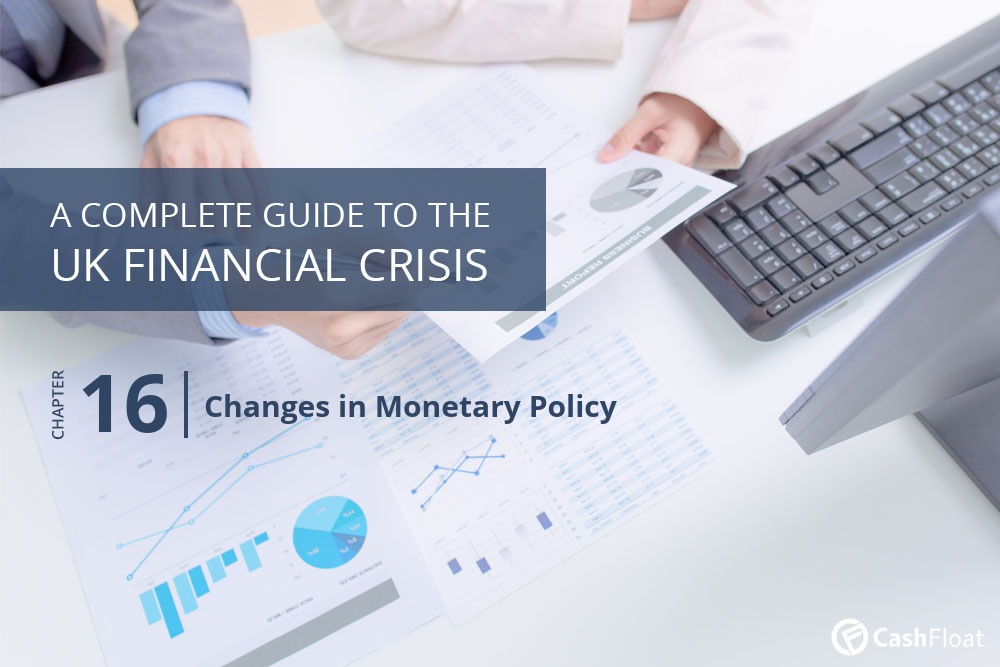Unstable prices in a market economy cause economic problems. So both high inflation and deflation are bad. Unfortunately, when times are difficult, most people want to hold on to their money except for essentials. However, if everyone does this at the same time, it halts the spending cycle and leads to deflation. At this point, the government must step in to prevent a spiral down to a depressed market economy.

The Monetary Policy Committee
The Monetary Policy Committee of the Bank of England meets monthly to set interest rates and track inflation. The ideal inflation level for the UK is around 2.5%, and this is the level that the MPC tries to keep stable. As the financial crisis developed, controlling the interest rates became the main channel to check skyrocketing inflation. The crisis saw interest rates drop from 5.50% to 0.50% in a little over a year and remain low until 2018.
This approach to monetary policy was very unconventional. Previous decades had much higher interest rates, and the new policies seemed radical. The series of quantitative easing measures also increased the amount of money in the UK to prevent a long term downturn in the economy. The government instituted both of these policies to provide more stability to the battered UK economy.

The committee intended the low interest rates to encourage borrowing and so increase investments and consumption. Unfortunately, this plan did not work well as banks weren’t lending nearly as much as they were before the crisis. On the one hand, this was a positive change, as lenders only extend credit to responsible borrowers, eliminating bad loans. On the other hand, the smaller lending and borrowing circle has also held back growth in the UK economy. The long-term low interest rates have also affected savers, especially pensioners, which means more people are cutting back on their spending. In retrospect, these unconventional monetary policies did not do much for the growth of the GDP of the country.
Signs of Recovery
While 2014-16 figures showed that the UK economy is heading in the right direction, growth has been much slower than expected. Some critics state that it may slow down even more once the latest rounds of austerity measures hit the public. The new banking regulatory bodies and the Monetary Policy Committee have used every means available to stabilise the economy of the UK. While the country is not yet out of the woods, there are signs of some recovery and stability. Yet, the amount of people dependent on expensive credit like payday loans continues to increase.
Although lending today is far below the figure of 2008, banks are now opening their vaults and assisting businesses by increasing investment into small and medium-sized companies. The housing market is also starting to show signs of recovery with prices rising, although this is mainly in the South East of the country.

Monetary Policy of Low Interest Rates
Although there was talk of raising interest rates sooner, the Bank of England only raised interest rates in 2018 to 0.75%. Several commentators were pleased with the positive signs of economic recovery and growth. The MPC has attempted to stabilise the rate of inflation since the crash. The Bank of England’s approach was slow and steady to avoid any dramatic increase in rates. The markets were still cautious as it had been so many years since they had seen strong growth. Others believed the markets would rise faster than the MPC predicted. That would have forced them to increase interest rates sooner than they predicted to counter inflation. However, this optimistic prediction did not turn out to be true, and interest rates remained low until 2018.
Is the UK economy stable? The answer will depend upon who you believe. The government is expecting slow but steady growth despite naysayers. Investors think that markets are being too complacent and that any rise in rates has not been priced into bonds. That could mean a faster rise in GDP than expected. The economy of the UK is better placed than many other European countries but is not yet on the steady growth path the government would like to see.



